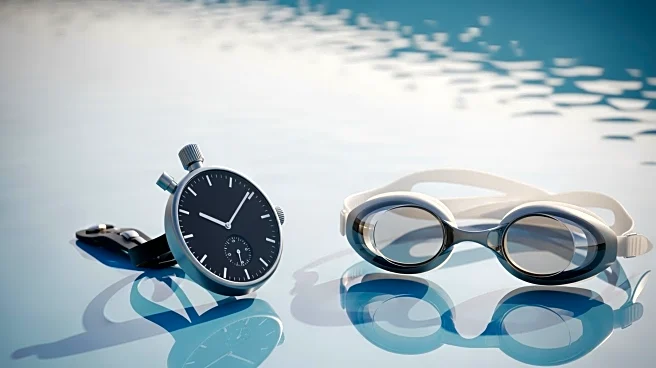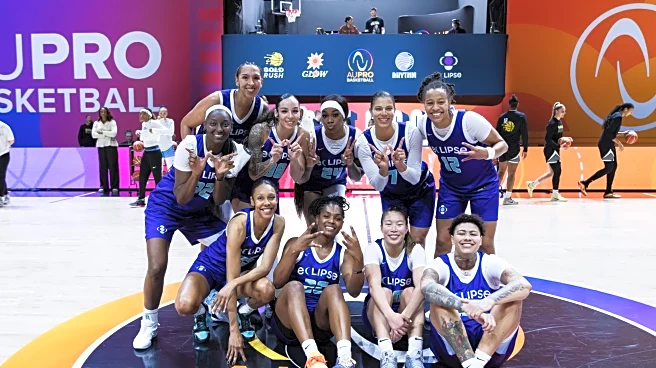What's Happening?
The LA 2028 Olympics swimming schedule presents significant conflicts for several top athletes, notably affecting their event choices. Summer McIntosh, a reigning Olympic champion, faces a scheduling conflict between
the women's 200 butterfly and 800 freestyle, both scheduled back-to-back on the final day. This situation mirrors her experience at the Paris Olympics, where she had to navigate similar conflicts. Kate Douglass, an American swimmer, faces a tight schedule with the finals of the 100 breast and 100 free scheduled an hour apart on day three. Douglass, known for her versatility, has never swum these events at the Olympics but has competed in them at World Championships. The retirement of Lilly King opens a medley relay spot for Douglass, adding complexity to her decision-making. Other athletes, such as Leon Marchand and Shaine Casas, also face scheduling challenges that could impact their performance and event choices.
Why It's Important?
The scheduling conflicts at the LA 2028 Olympics could significantly impact the strategies and performances of top swimmers. Athletes like Summer McIntosh and Kate Douglass may have to make tough decisions about which events to prioritize, potentially affecting their medal prospects. These conflicts highlight the increasing competitiveness and strategic complexity in Olympic swimming, where athletes must balance their strengths across multiple events. The decisions made by these athletes could influence team compositions, relay strategies, and overall medal tallies for their respective countries. Additionally, the conflicts may prompt discussions about the fairness and feasibility of Olympic scheduling, potentially leading to future adjustments to better accommodate athletes' needs.
What's Next?
As the LA 2028 Olympics approach, athletes and coaches will likely engage in strategic planning to navigate these scheduling conflicts. Decisions on event prioritization will be crucial, with potential implications for training regimens and qualification strategies. National swimming federations may also play a role in advising athletes on optimal event choices to maximize medal opportunities. The conflicts could lead to increased focus on individual event specialization, as athletes seek to optimize their chances in the most competitive fields. Additionally, the Olympic organizing committee may face pressure to reconsider scheduling practices to minimize such conflicts in future games.
Beyond the Headlines
The scheduling conflicts at the LA 2028 Olympics underscore broader issues in sports event management, including the balance between athlete welfare and competitive scheduling. These challenges may prompt discussions about the ethical considerations of event planning, particularly in high-stakes environments like the Olympics. The conflicts also highlight the evolving nature of competitive swimming, where athletes are increasingly versatile and capable of excelling in multiple disciplines. This trend may influence future training methodologies and the development of young swimmers, as they adapt to the demands of modern competitive swimming.










